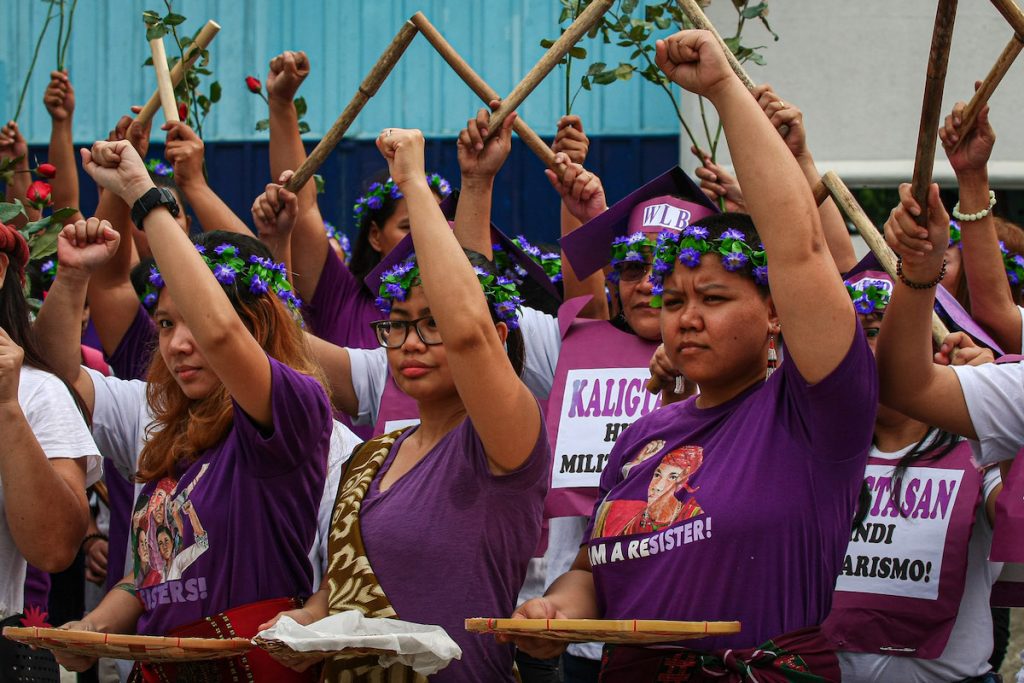Women’s groups in the Philippines are blaming the growing number of Chinese gambling operations in the country for the reported rise in sex trafficking cases.
Police raids in recent weeks revealed that upscale bars and “health and wellness” establishments in the country’s financial capital, Makati, have been fronting as sex dens.
More than a hundred women, many of them foreigners, have been rescued in these raids since November 2019.
Abby Binay, mayor of Makati, has since ordered a halt to the issuance of new business licenses and permits to the gaming operators that primarily cater to the mainland Chinese market.
A witness told senators in an inquiry last week that those involved in the illicit sex trade use the social media application WeChat to conduct business.
They use culinary terms for code, exploiting an equally fast-growing food delivery trade in traffic-choked big cities, the witness said.
Women’s rights activist Jean Enriquez said that as sex trafficking should be viewed as violence against women, “the investigation should focus on the perpetrators.”
Opposition senator Risa Hontiveros, chairwoman of the Senate’s Committee on Women, Children, Family Relations, and Gender Equality, called on law enforcers to uncover the protectors of the illegal activities.
The senator said during the inquiry that it can take as little as US$200 to convert a visa upon arrival into “any other work document.”
The Philippine government offered visas on arrival to attract Chinese tourists, with 1.9 million such visitors entering the country in 2019.
The program, however, is temporarily on hold due to the outbreak of new coronavirus.
Authorities believe most of the new sex dens in the Philippine capital cater to young Chinese male workers hired for the country’s 58 accredited offshore gambling operations.

“Gauging from the increase of visibility of Asian men, specifically Chinese men as prostitution buyers, tourism for sexual exploitation is apparently increasing,” Enriquez told legislators during the inquiry.
Congresswoman Arlene Brosas of the Gabriela Women’s Party likewise traced the rising demand for prostituted women to the growth of Philippine Offshore Gaming Operations — the official designation for firms operating in the Philippines that provide online gambling services to markets outside of the country — which are dominated by Chinese businessmen.
Many of those working in these offshore gambling operations who frequent prostitutes are young, single, and/or working away from their families in China.
Official estimates put the number of people employed by the gambling industry at 138,000 — only 26 percent of whom are Filipinos.
In recent months, China has complained the Philippine-based operations target its citizens. China outlaws gambling.
It is the rise of forced prostitution, however, that most alarms legislators and women’s rights advocates.
Brosas said sex dens usually charge $300 for Filipino escort services and between $400 and $600 for Chinese escorts.
A witness in the Senate inquiry claimed that Russian and Korean women are also trafficked, commanding higher prices — up to $900.
Vietnamese and Malaysian women have also been rescued during the police raids.
Enriquez called on Philippine officials to look beyond what forced women to join the sex trade and investigate the possible collusion between Filipino business operators and Chinese traffickers.